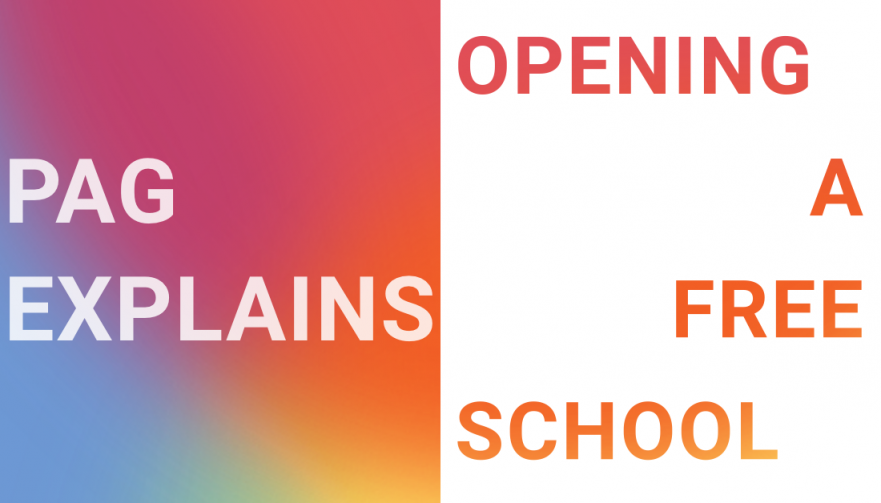PAG Explains: Opening a Free School
At the time, PAG’s managing director, Tom Legge, was working for a small education consultancy. Building Schools for the Future was still running, and he was busy reviewing the various commitments being made by the major parties. While many things were changed by the return of a coalition government, the free schools policy survived, and for Tom, this was the start of a decade-long relationship with them.
Since then, Tom has supported countless free school proposers with their applications, launched his own education consultancy, PAG, and more recently launched Create: Schools as the DfE’s sole supplier of free school support and advice.
Free Schools and Me
As with many of my best ideas, two components aligned: being in a pub and drinking with someone with more vision than me. What started as a discussion about how to best work with proposers to open their free schools, turned into a simple but fundamental question; “Why don't we open a free school of our own?”
Once my laughter had subsided, we started warming to the idea… Finance skills – Check; Governance skills – Check; ICT experience – Check; Community links – Check; Procurement, FM, - Check, Check and so we went on until… Experience of actually leading a school… Ahh.
Luckily, most of my working and volunteering life at the time was spent working with inspiring school leaders, so it didn't take long to enlist the support of a couple of brilliant headteachers to join us on the adventure.
•The absolute joy of the first day of seeing the first Year of Reception pupils coming into the school.
•The desolation, guilt and shame of receiving an Inadequate Ofsted judgement at our first secondary free school. This scar will stay with me for life.
•The floods of tears when, in one Ofsted cycle, we managed to turn the Ofsted judgement from Inadequate to Good. See my point about knowing school leaders who can really make a difference to kids’ lives!
•Our first GCSE results, our first Year 6 leavers, opening our Sixth Form…I could go on as free schools are the challenge and the gift that keeps giving.

Frequently Asked Questions
The short answer is that there isn’t one. Free schools are academies. There are, however, different types of academies. The main difference between free schools and other types of academies is that free schools are new schools being opened either via a free school presumption process or via the central free school waves, whilst academy converters, for example, are schools which were previously maintained by the local authority and have since converted to being an academy.
There are two ways to open a free school. One way is via a free school presumption process, also known as a local authority (LA) competition. These are competitions organised by the local authority to address a need in the local area and only open to those who are, or who are prepared to become Academy Sponsors. The other route is via the central free school waves, in which free school proposers apply directly to the DfE, although LA’s are still involved, particularly where SEND and AP schools are concerned.
With local authority competitions there will often be more specific requirements from the LA, with them taking care of identifying a site, establishing need, but also specifying school type and size. On the other hand, the central waves give more freedom in terms of what kind of school you want to open, but it will be down to the proposer to build a needs case and identify a site, among other things.
Find out more about local authority competitions with our guide.
Earlier this year, PAG became the DfE’s sole supplier of free school advice and support, and in June we launched our Create: Schools service to deliver that support. The Create: Schools team is available to offer free support and advice to all potential free school proposers. You can get in touch with our colleagues at Create: Schools here.
If you are looking for support with actually writing your free school bid, that is where PAG can support. Our expert bid writers have a success rate of over 90% based on applications progressing to interview. You can also read our guide on writing a free school bid here.

